Red Heart: Episodes 13-14
by solstices
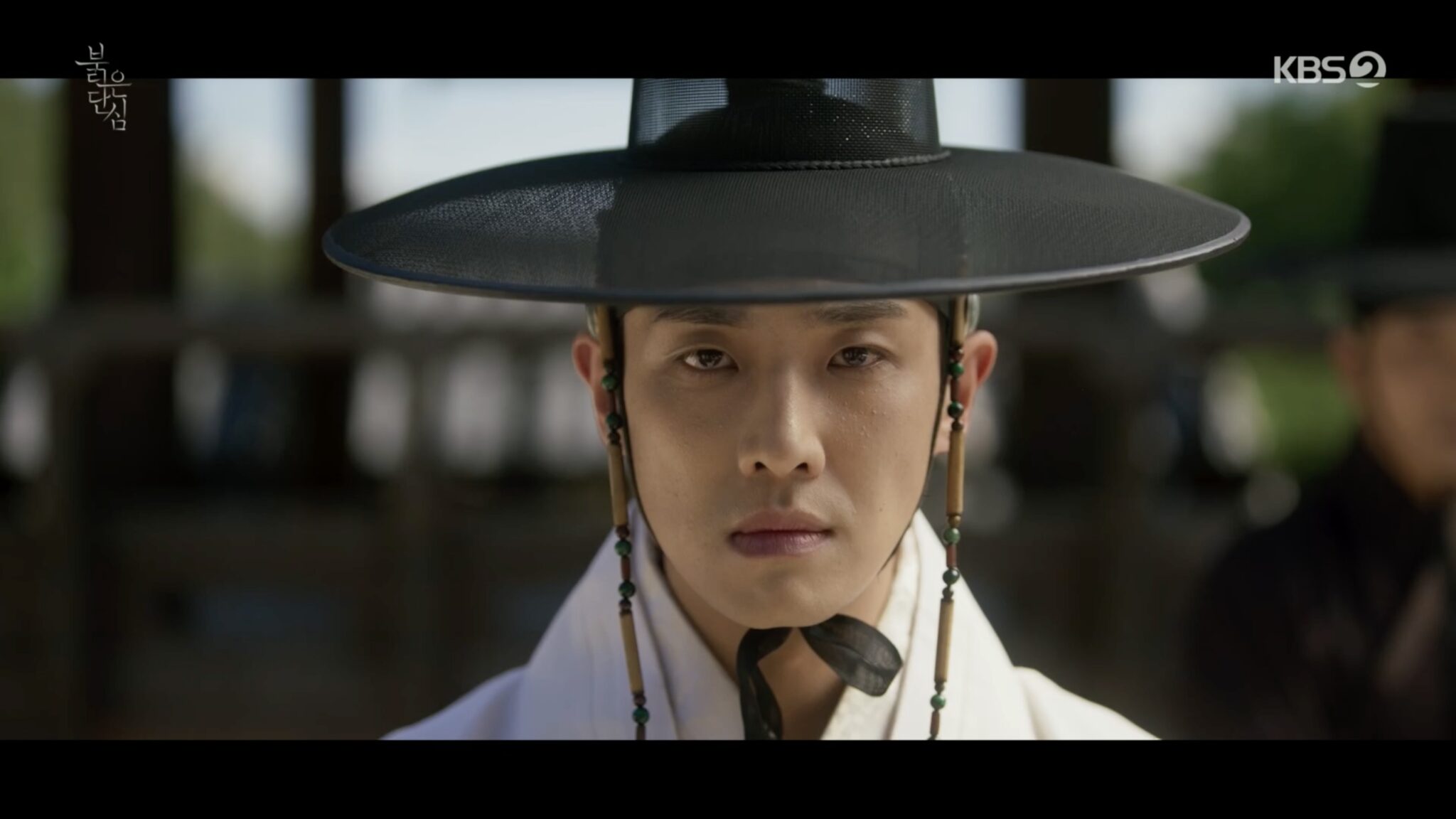
Plans are enacted and sacrifices are made, as our hero finally steps up to the battle’s forefront. The question is, though — what makes a ruler? And what makes a good one?
EPISODES 13-14 WEECAP
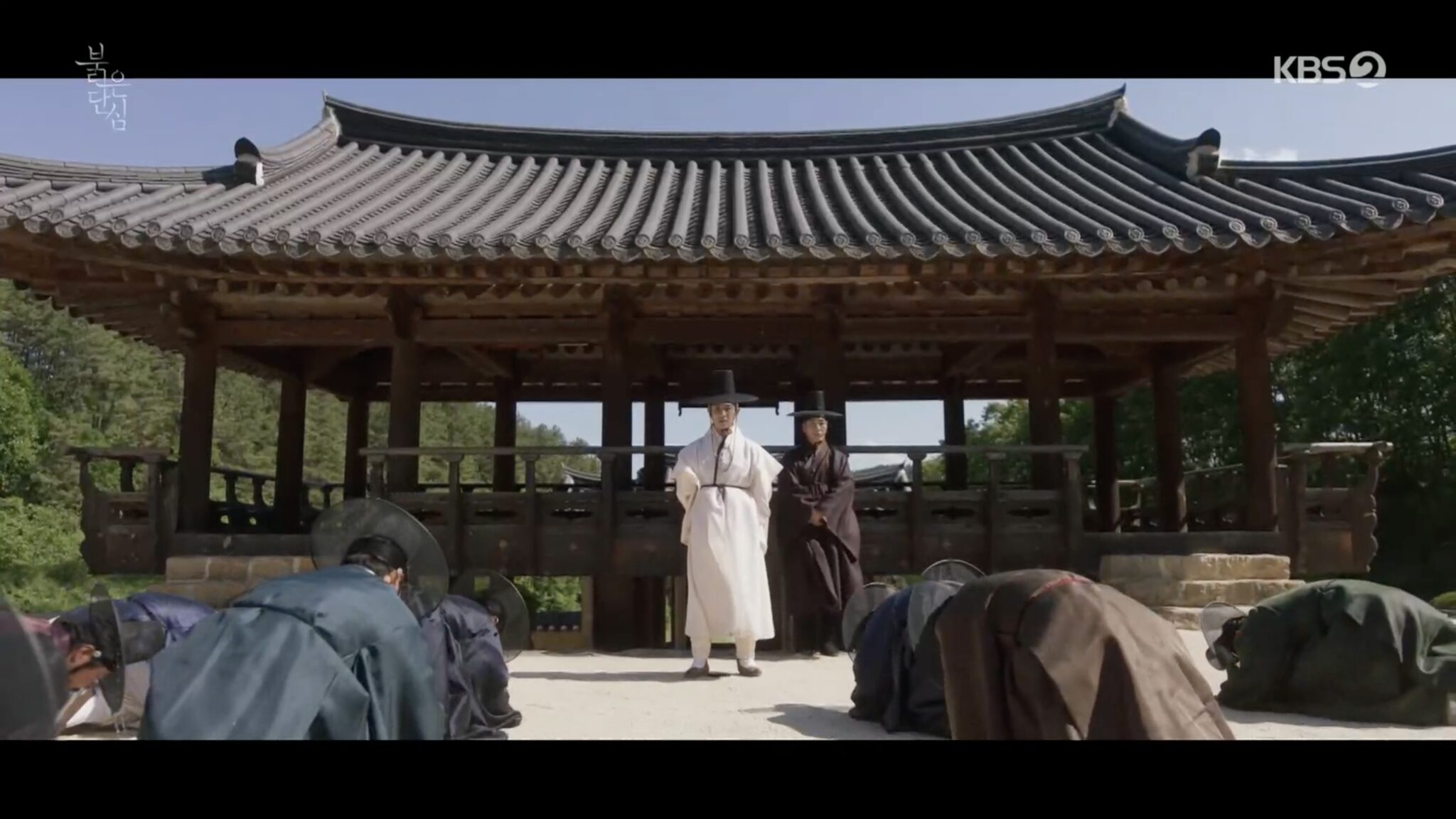
Tae’s plan launches into full swing, made possible by the tolerance to poison he’s built up — turns out his mother had made him drink mildly poisoned tea over the years to protect him from assassination.
Tae reveals himself to the Sarim scholars, promising to clear Yoo Hak-soo’s name and restore his title posthumously. That earns him their support, especially since they’ve been staunchly opposing the queen dowager’s rule.
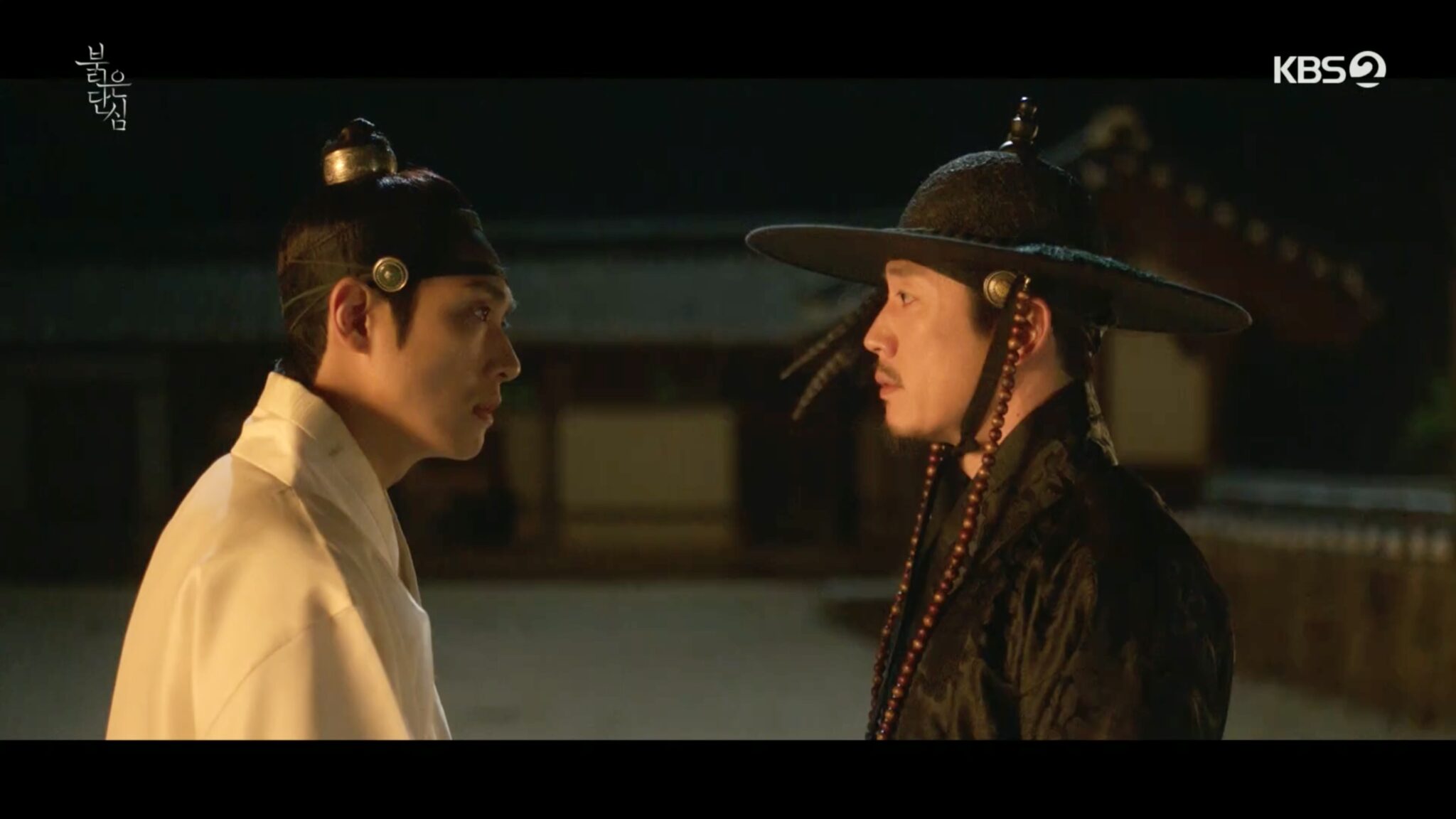
Meanwhile, Gye-won’s investigations have led him to the truth of Si-wol’s double identity. He demands a private meeting with Tae, who grants it. Their conversation is laden with much weight — Gye-won harshly denounces the late king for being feeble and shirking his duties, accusing Tae of the same.
In contrast, Tae argues that his father’s subjects forced him onto a throne he did not desire; Tae’s actions now are borne out of the need to wrest his rightful power back from his errant subjects.
Tae raises an interesting question: what gives Gye-won the right to determine what a king ought to be like, or for that matter, how the country’s fate should unfold? Yet the counter to that is, what gives the king that same right, apart from his royal blood?
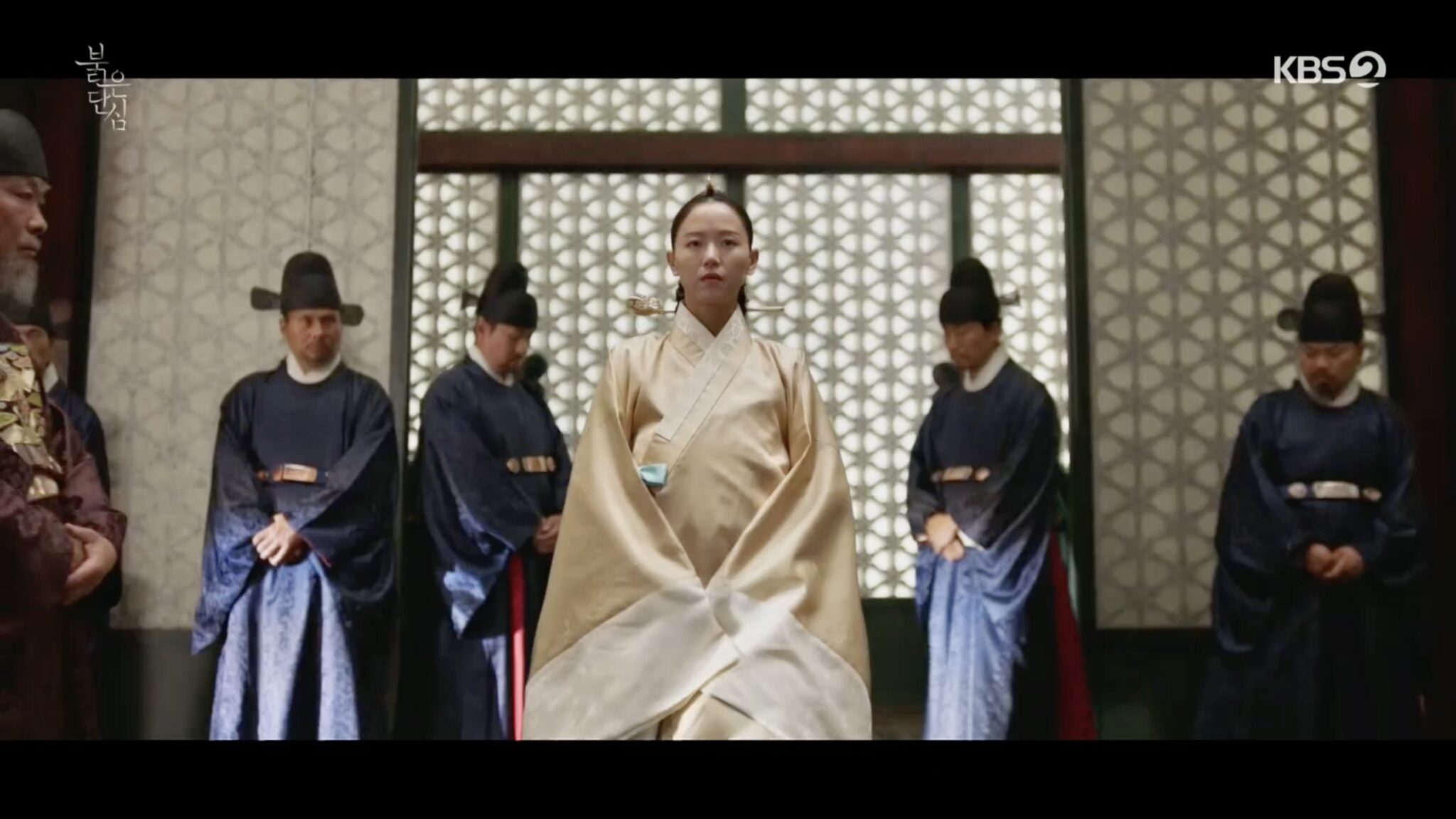
Despite it being taboo for ladies of the internal court to step foot into the royal office, Jung requests an audience with the queen dowager. She points out the Office of Palace Eunuchs’ overstep in detaining Ddong-geum, then declares in front of all the ministers that she is carrying Tae’s child.
That gets her wish granted, and Jung rushes to rescue Ddong-geum. She’s barely hanging on, and upon their tearful reunion, she falls limp in Jung’s arms.
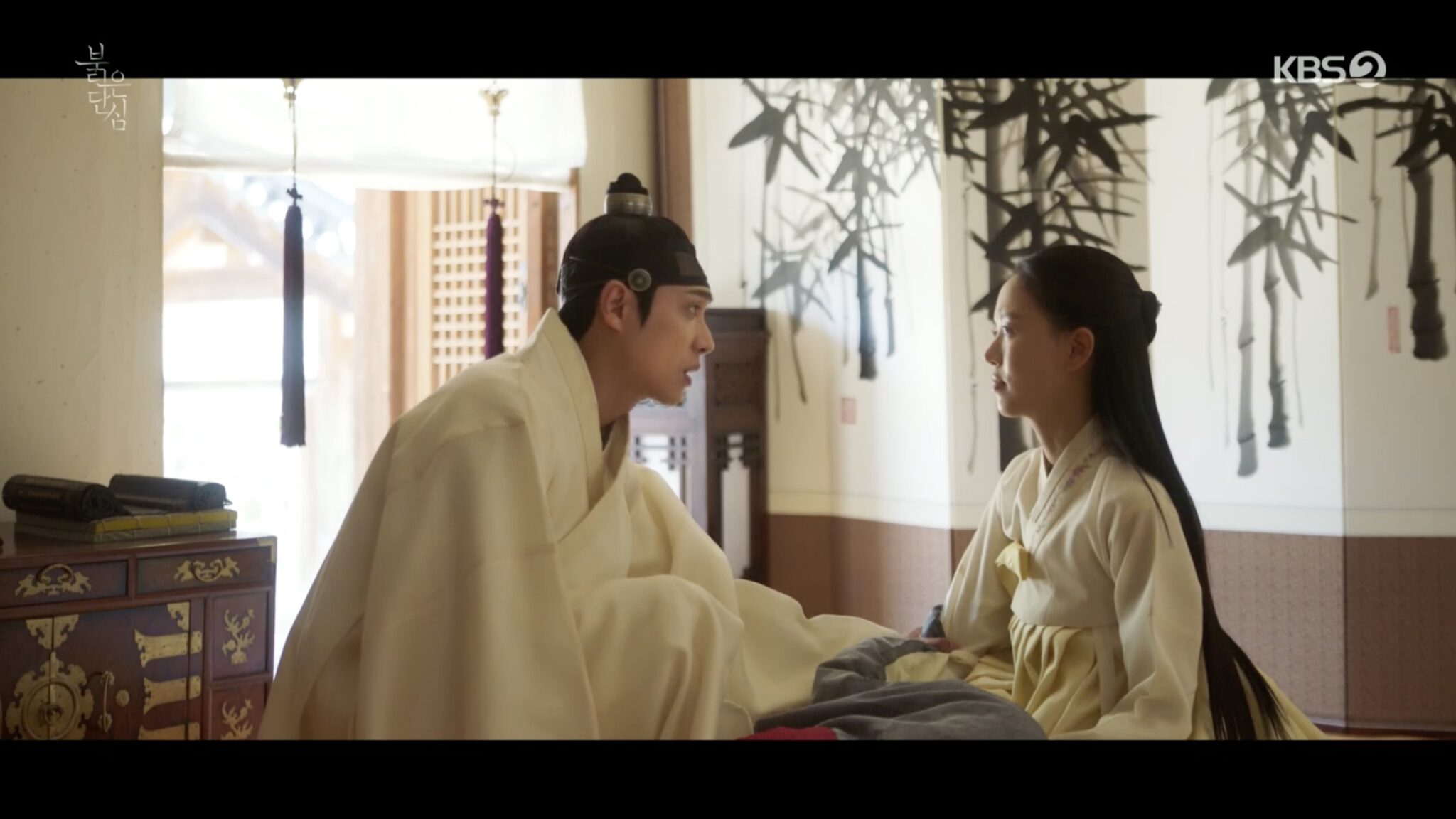
The confirmation of Jung’s pregnancy leads to even more opposition against the queen dowager’s regency. Scrambling to defend her unrightful power, the queen dowager plots to have Jung murdered that very night, along with other dissenters.
However, Jung has inspired loyalty in her court ladies. Using Ddong-geum’s death, they sneak Jung out of the palace in place of the corpse. She’s discovered not long after regaining consciousness, but a group of swordsmen save her from the soldiers, and Jung is finally reunited with Tae.
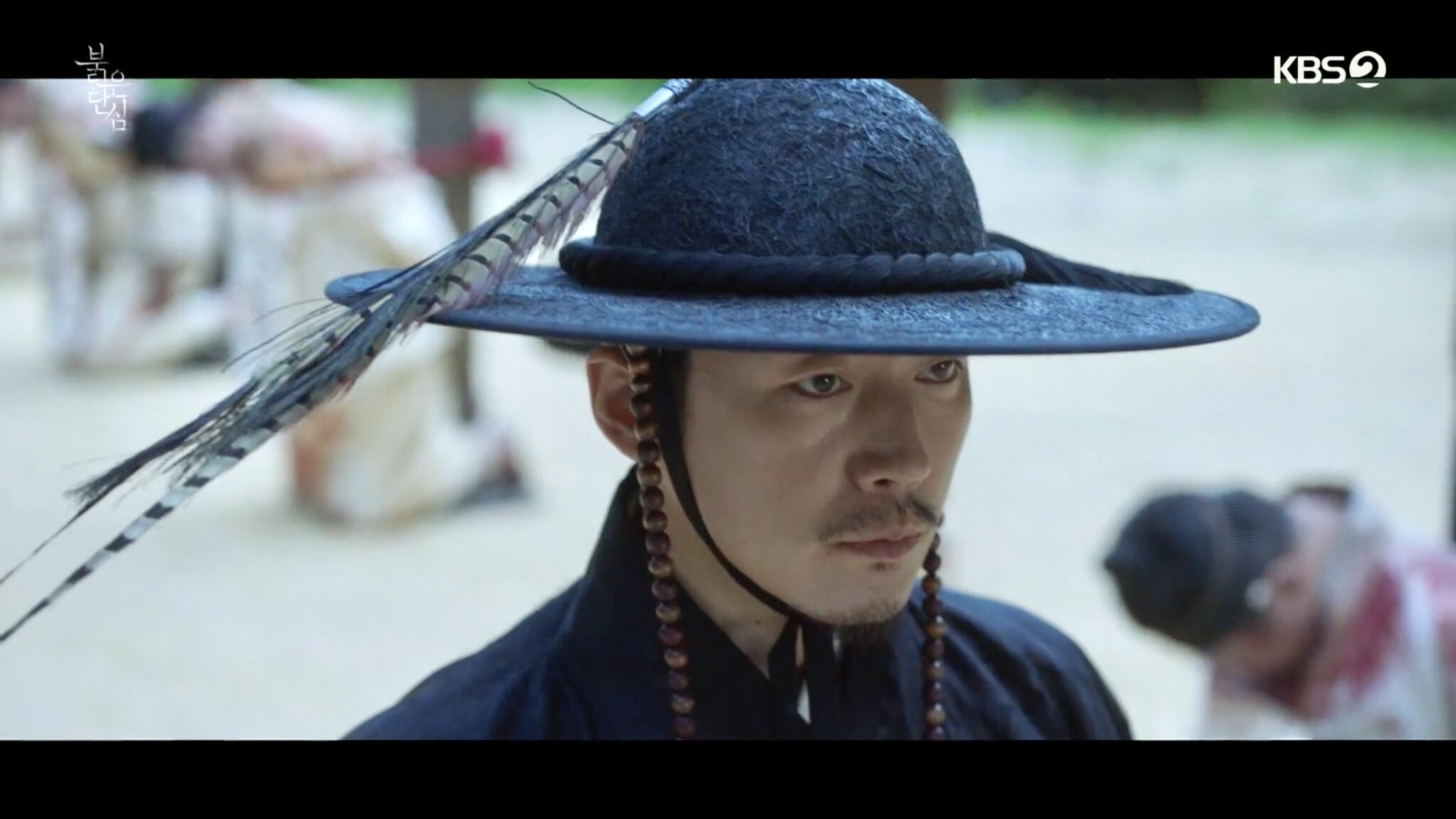
The same can’t be said for the other names on the queen dowager’s kill list, many of whom are murdered in cold blood. Once again, Gye-won has to walk down a palace path flanked by the corpses of his comrades.
It’s chilling how, in the process of trying to prevent a second tyrant from taking reign, Gye-won has unknowingly been nursing the very same monster in his backyard.
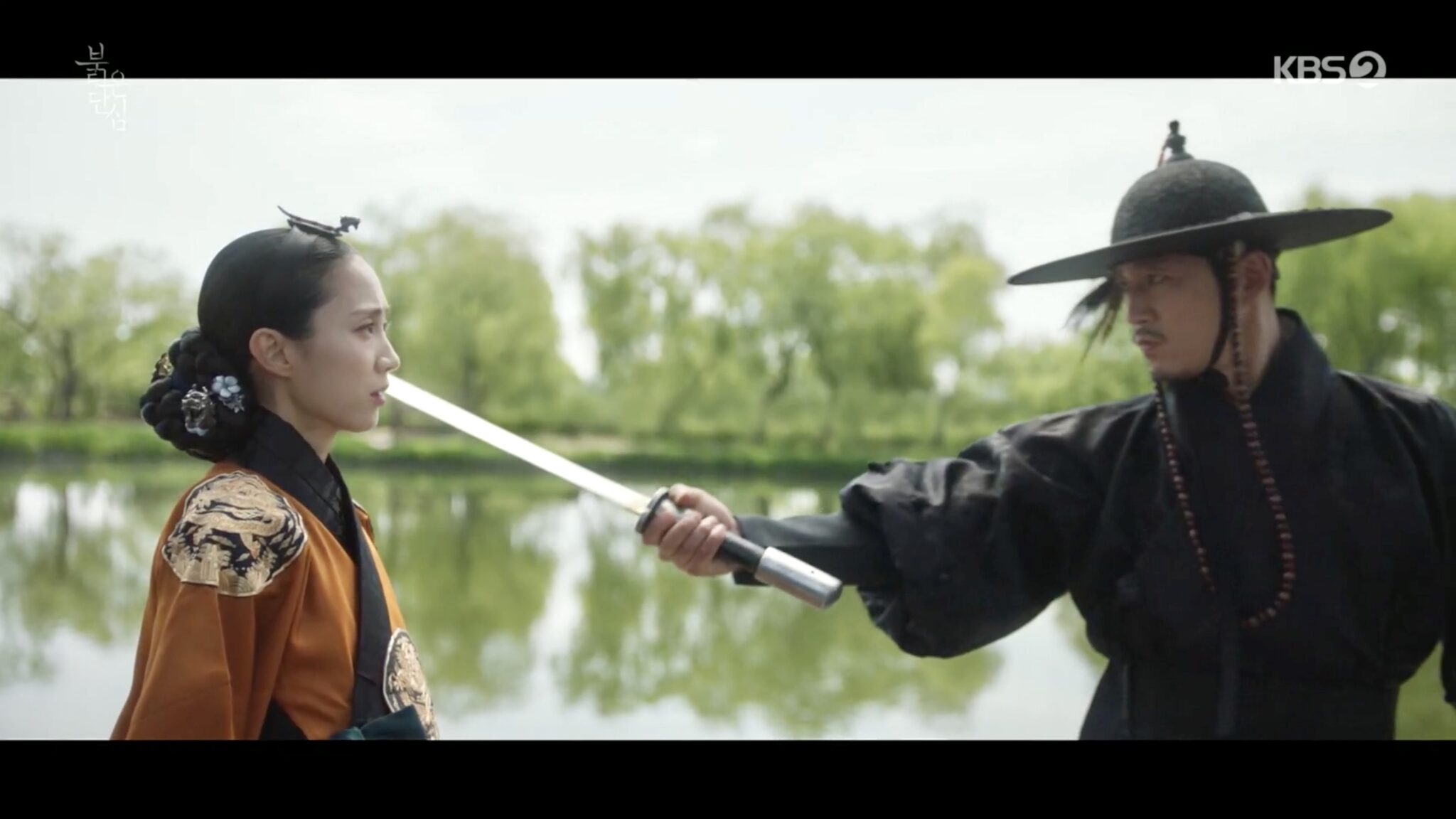
Gye-won fights his way to the queen dowager, holding his sword to her throat. He presses hard enough to draw blood, but can’t follow through. The queen dowager wavers, though, and orders for him to be locked up in the internal prison for now (instead of being taken to the state tribunal).
The queen dowager is growing suspicious of Si-wol, who hasn’t been able to deliver on his promises (such as the king’s death). Unwilling to have yet another of his loyal subjects die, Tae has his eunuch urge Si-wol to leave the palace. Yet Si-wol goes back, claiming to have one last thing to do. Oh no, please don’t let this be a death flag…
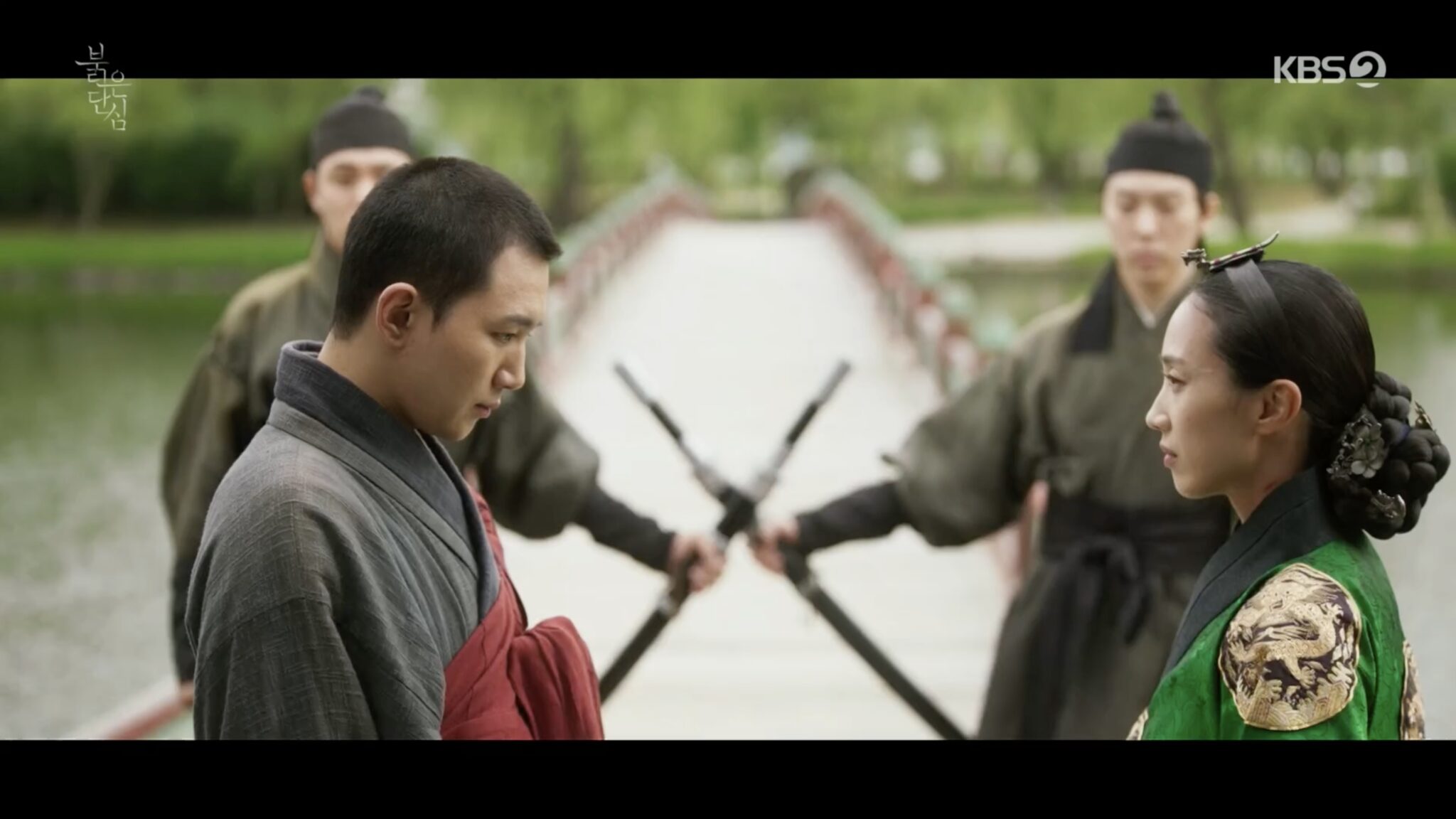
Si-wol approaches the queen dowager, but she’s already realized that Tae may be awake, and that Si-wol is likely on his side. She has Si-wol taken away, and under interrogation he confesses that Tae has called upon Jeolla soldiers for his cause.
That matches the regional army tag that was found at the site of Jung’s rescue, and the queen dowager uses the troop dispatch token she took from Minister Jo to mobilize the whole country’s soldiers in response.
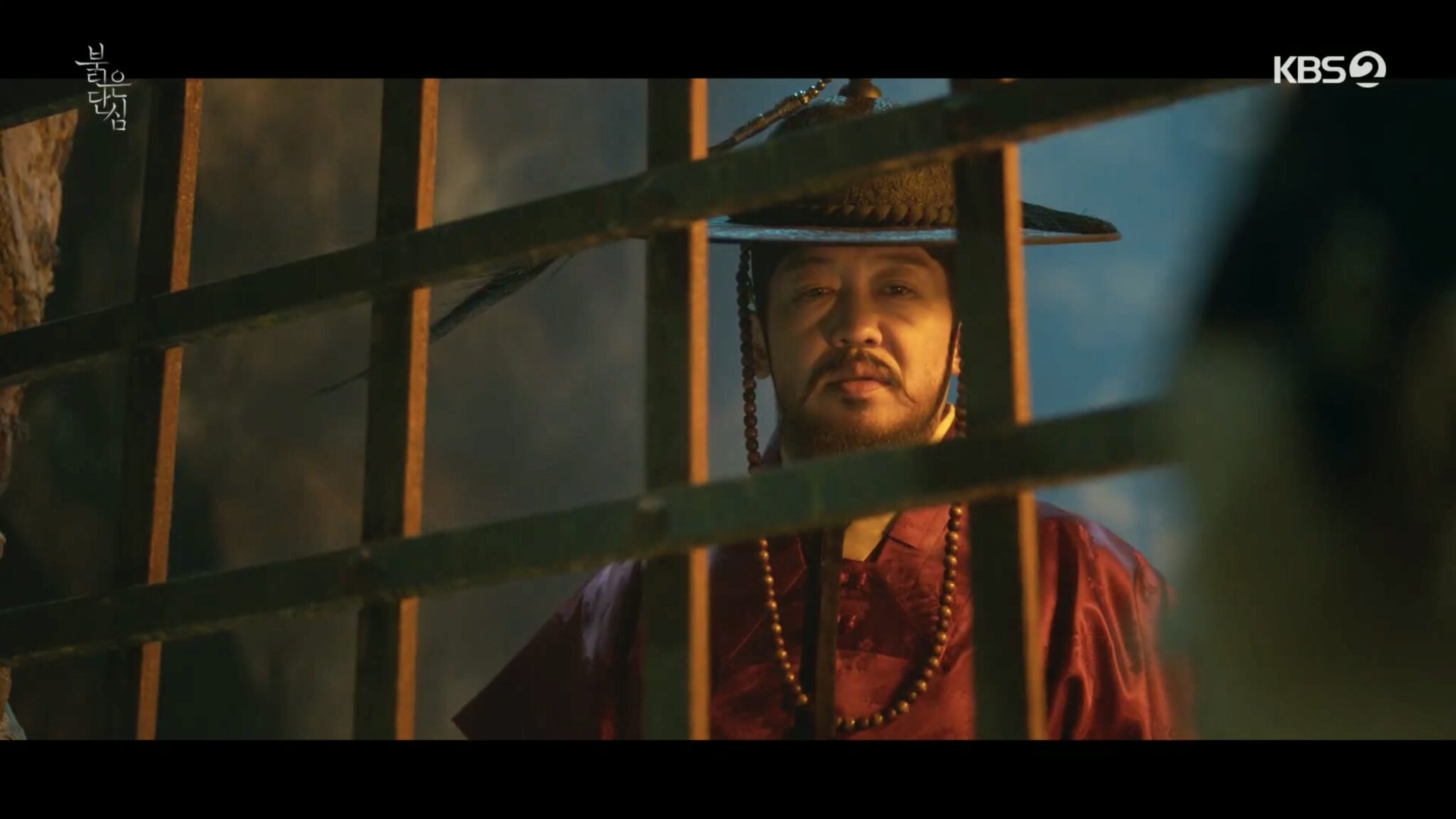
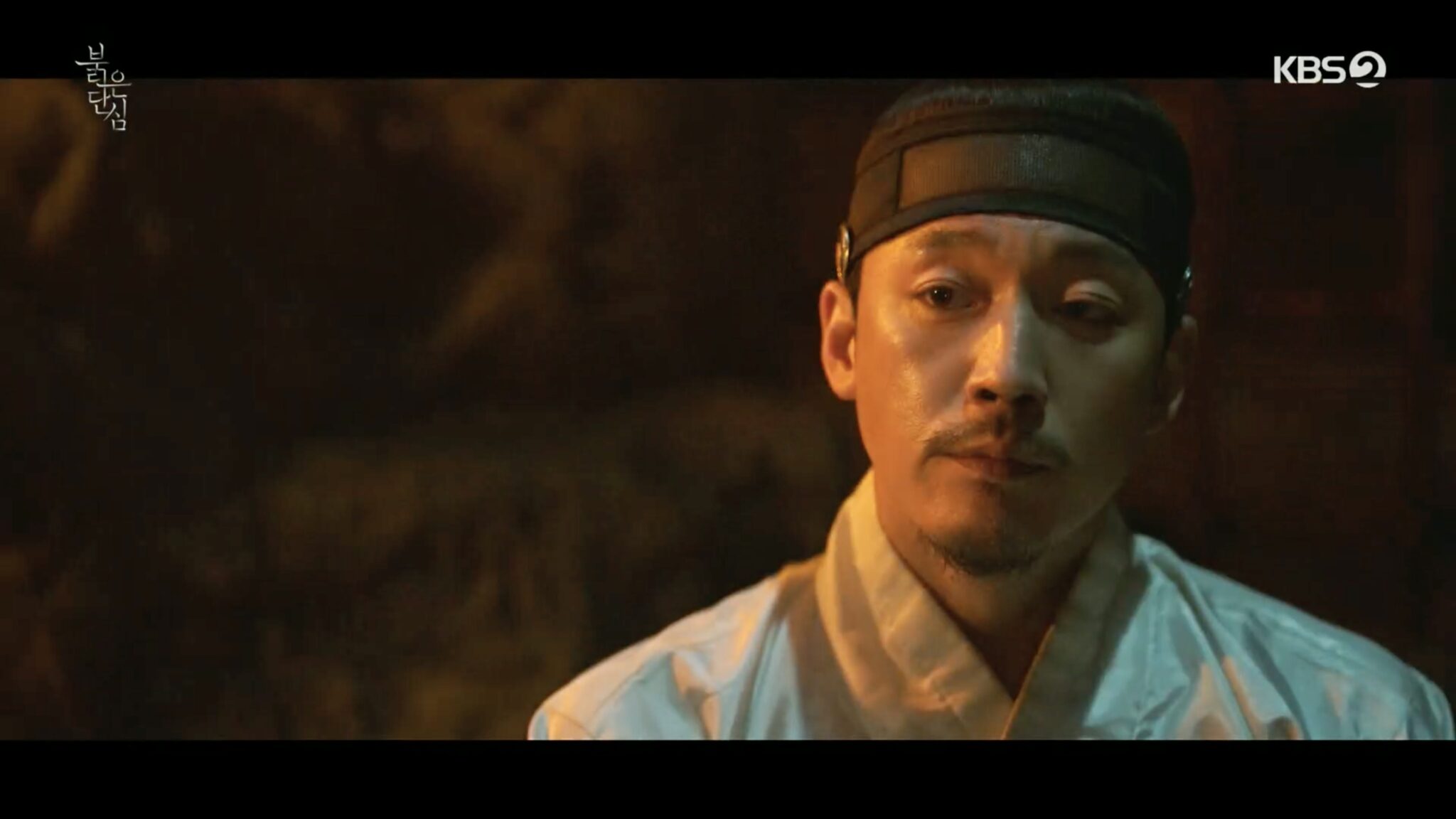
Ooh, it was all part of the plan! The queen dowager’s actions have given Tae the necessary justification to gather troops against her — both the regional army tag and the troop dispatch token are fakes.
In another surprise reveal, we find out that Gye-won and Minister Jo had been working together; Minister Jo had deliberately forged the token and allowed the queen dowager to take it, all under Gye-won’s directions.
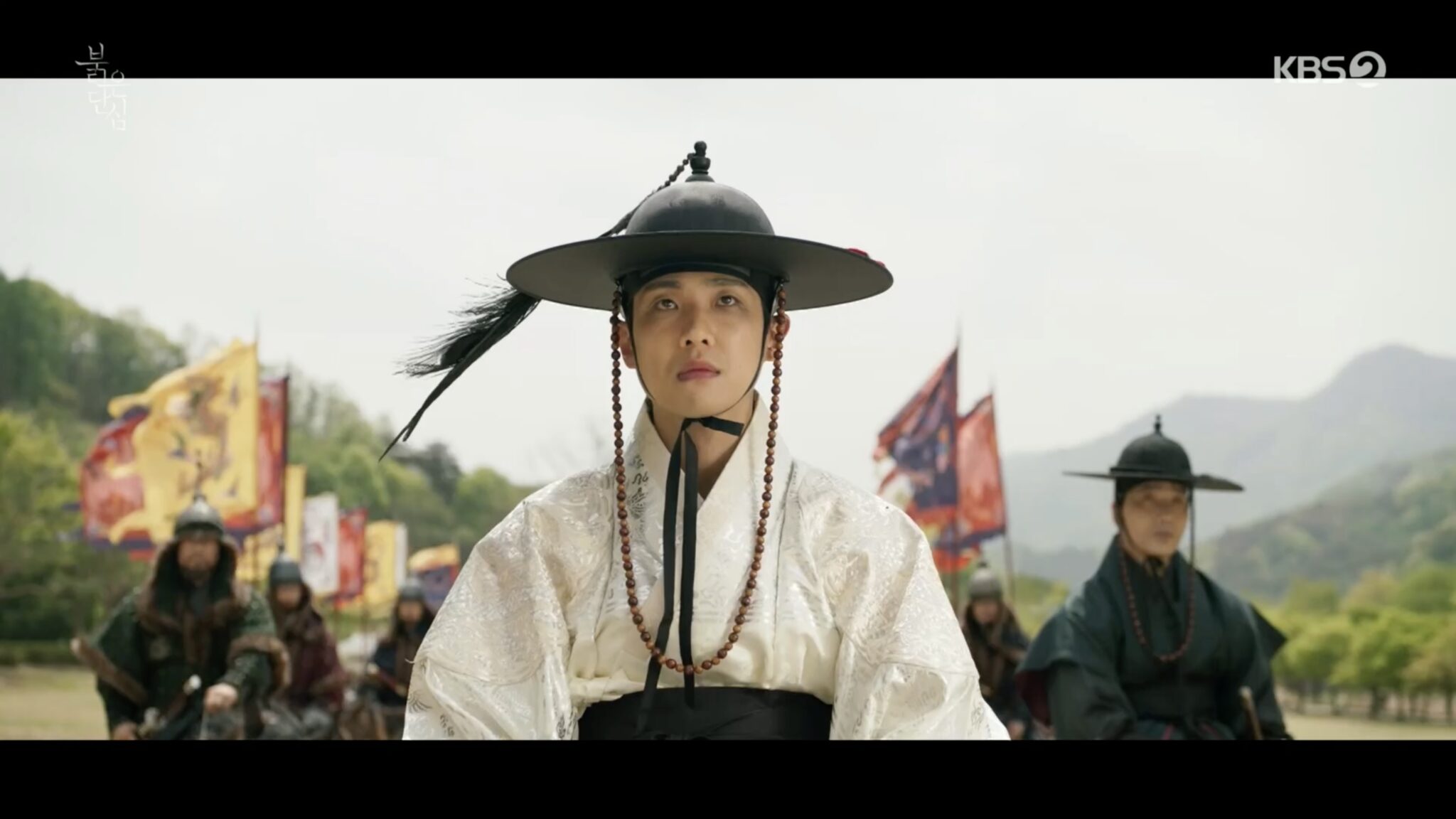
Flanked by his regional troops, Tae makes a triumphant return. So does Jung, who is relieved to find her court ladies imprisoned but alive and well. Gye-won is released upon Tae’s orders, and the queen dowager’s traitorous subjects are captured. Unfortunately, Tae’s eunuch is one step too late, and he finds Si-wol dead from his torture. Noooo.
Despite the queen dowager’s treachery, Tae can’t openly denounce his mother without risking a rebellion against himself. As such, he offers Gye-won a choice — rally the subjects and depose the queen dowager, and he’ll get to walk away with his life. Else, he’s going down for aiding her.
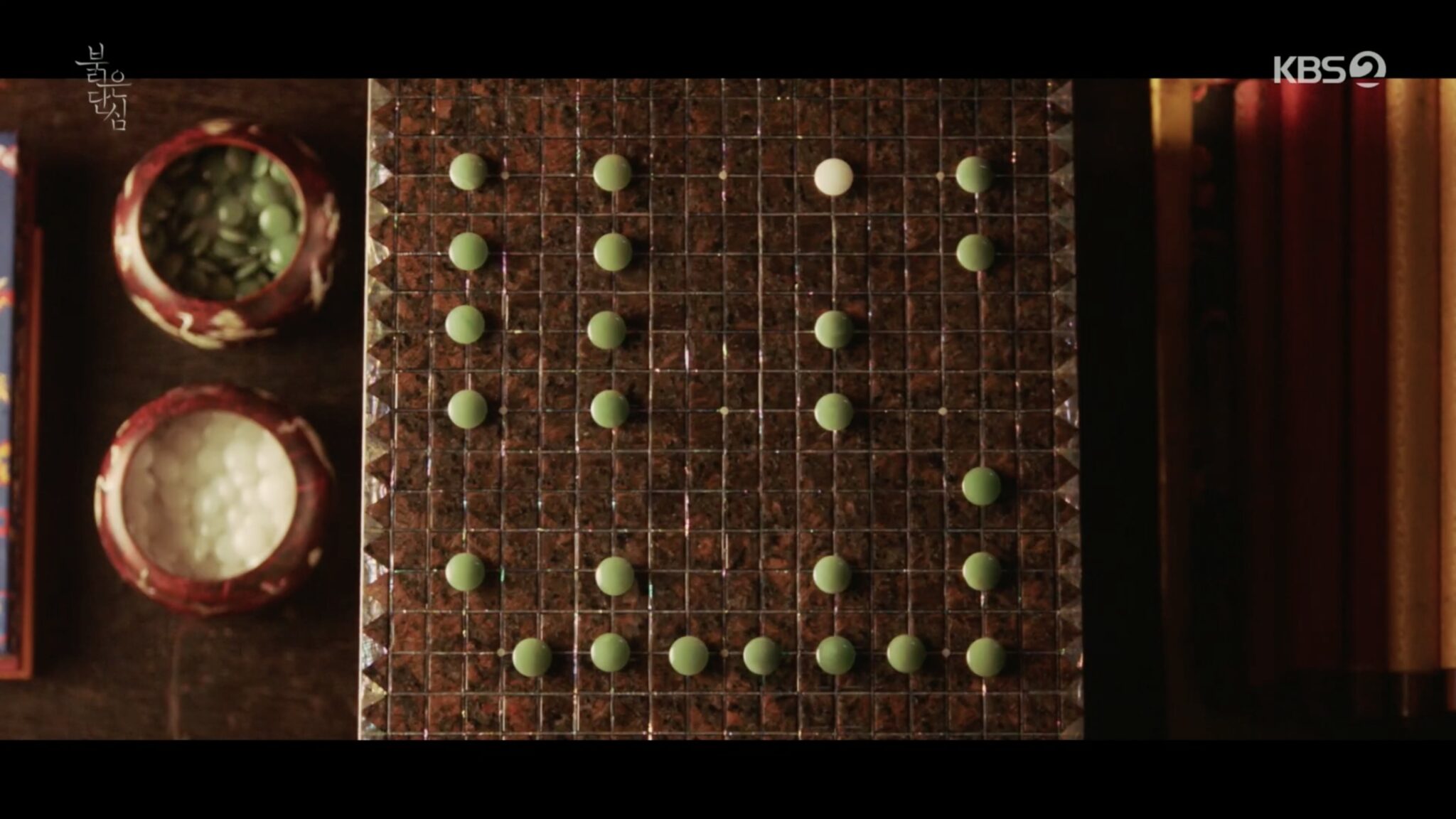
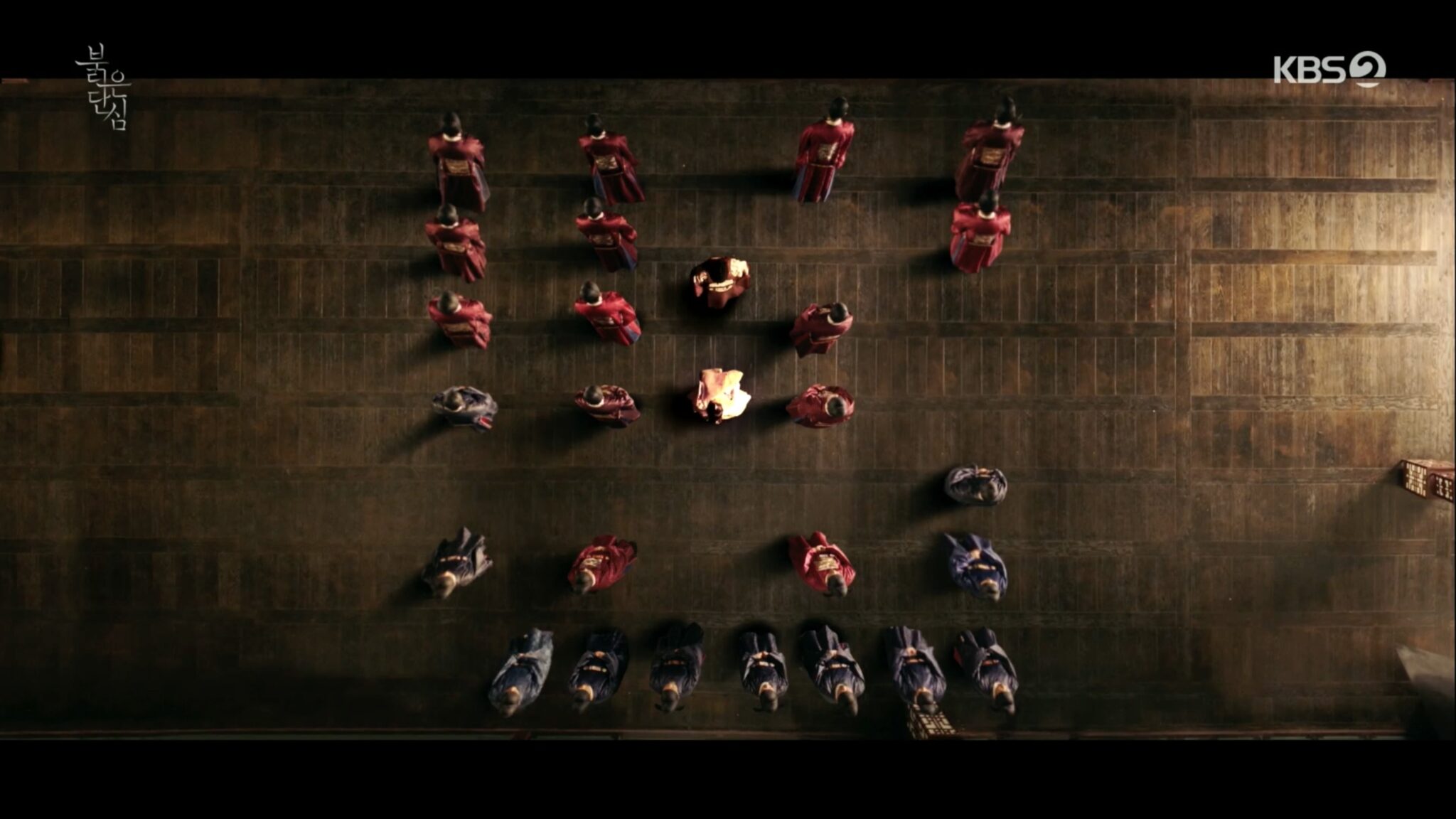
Of course, Tae’s plan is going a little too smoothly, and a wrench is thrown into the works for the show’s final hours. Having previously noticed Tae’s chessboard that represented the state ministers, Jung puts the pieces together and realizes that Tae was behind it all.
Feeling deceived and distraught, Jung confronts Tae about his scheming — he’d instigated the queen dowager’s regency, and plunged the country into chaos. Tae’s been caught in his lie.
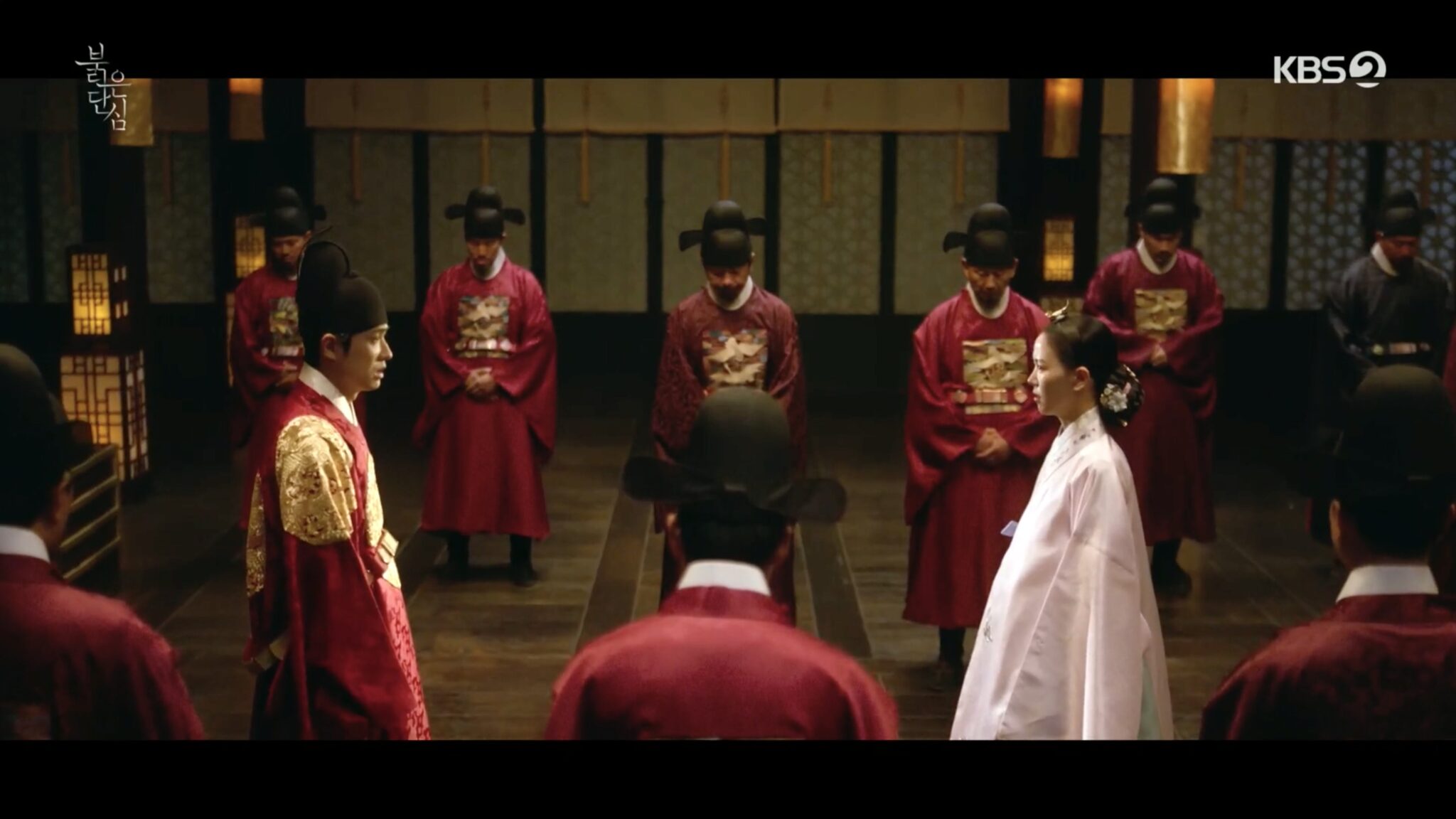
Time and time again we’ve seen that Tae isn’t above manipulating others as pawns (or chess pieces), and the parallels between Ddong-geum and Si-wol illustrate this quite poignantly. Both died for Tae’s crusade, left to be discovered by their heartbroken loved ones. It’s not to say that Tae doesn’t feel guilt, because he’s clearly pained by their deaths, but he pushes forth with his ideas and ideals anyway.
Of course, a ruler has a duty towards both his individual subjects, as well as the overall country that he must protect; sometimes the latter inevitably comes at the cost of the former. That is the weight a ruler must bear, but it also begs the question — were these sacrifices avoidable, had Tae taken another path?
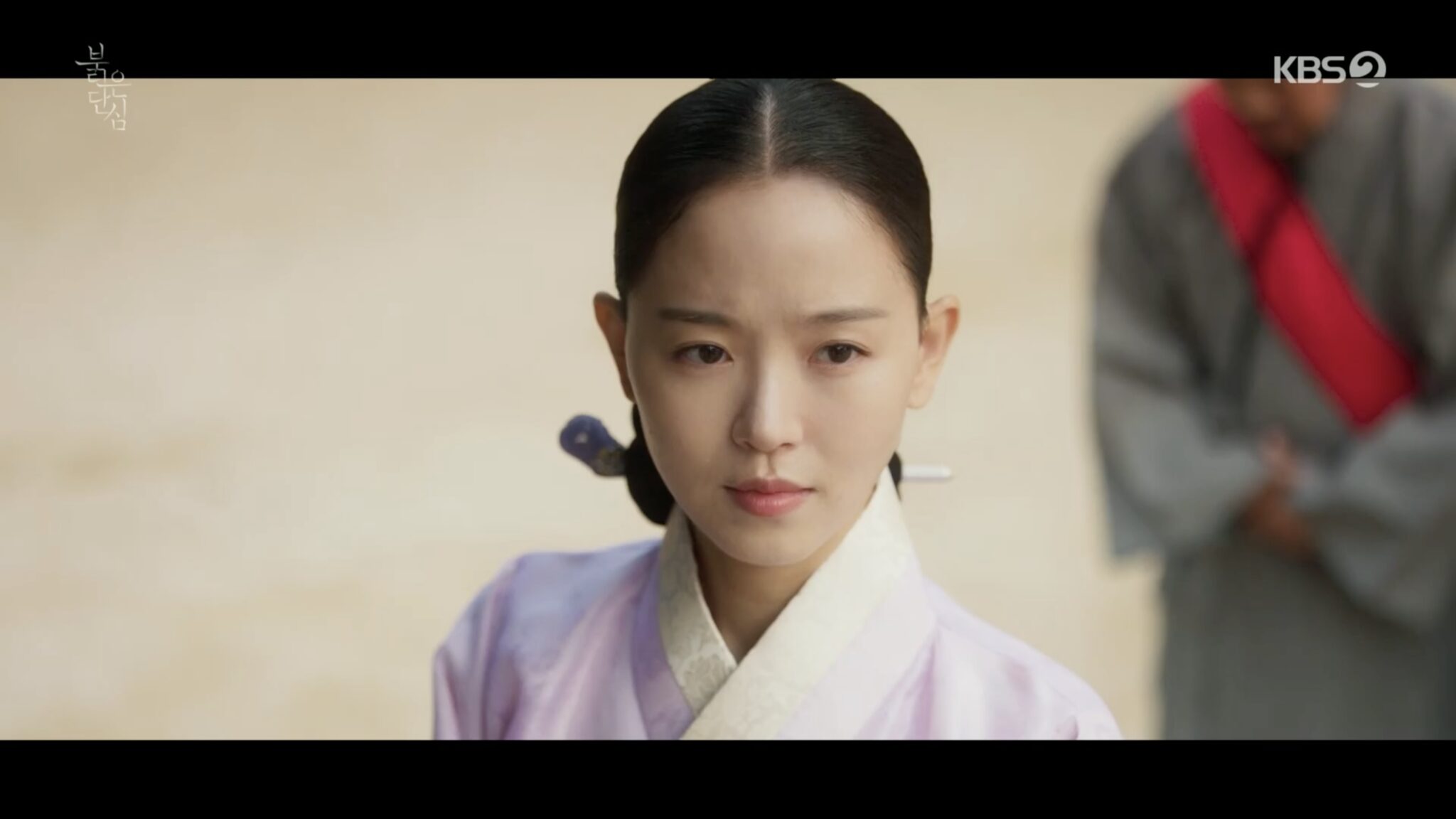
Jung clearly thinks so, and it makes her a more virtuous ruler in Gye-won’s eyes. Where Tae sees the forest, she sees the trees. Yet it is also her empathy that constantly places her in peril, and while that’s no character flaw, it certainly would be an Achilles’ heel for a ruler.
Tae and Jung balance each other out well, which gives them the potential to be a powerful pair once they’re working in tandem and keeping each other in check. Still, it remains to be seen whether their ideals will clash as a result of their differing perspectives, or if they’ll be able to lead Joseon to glory.
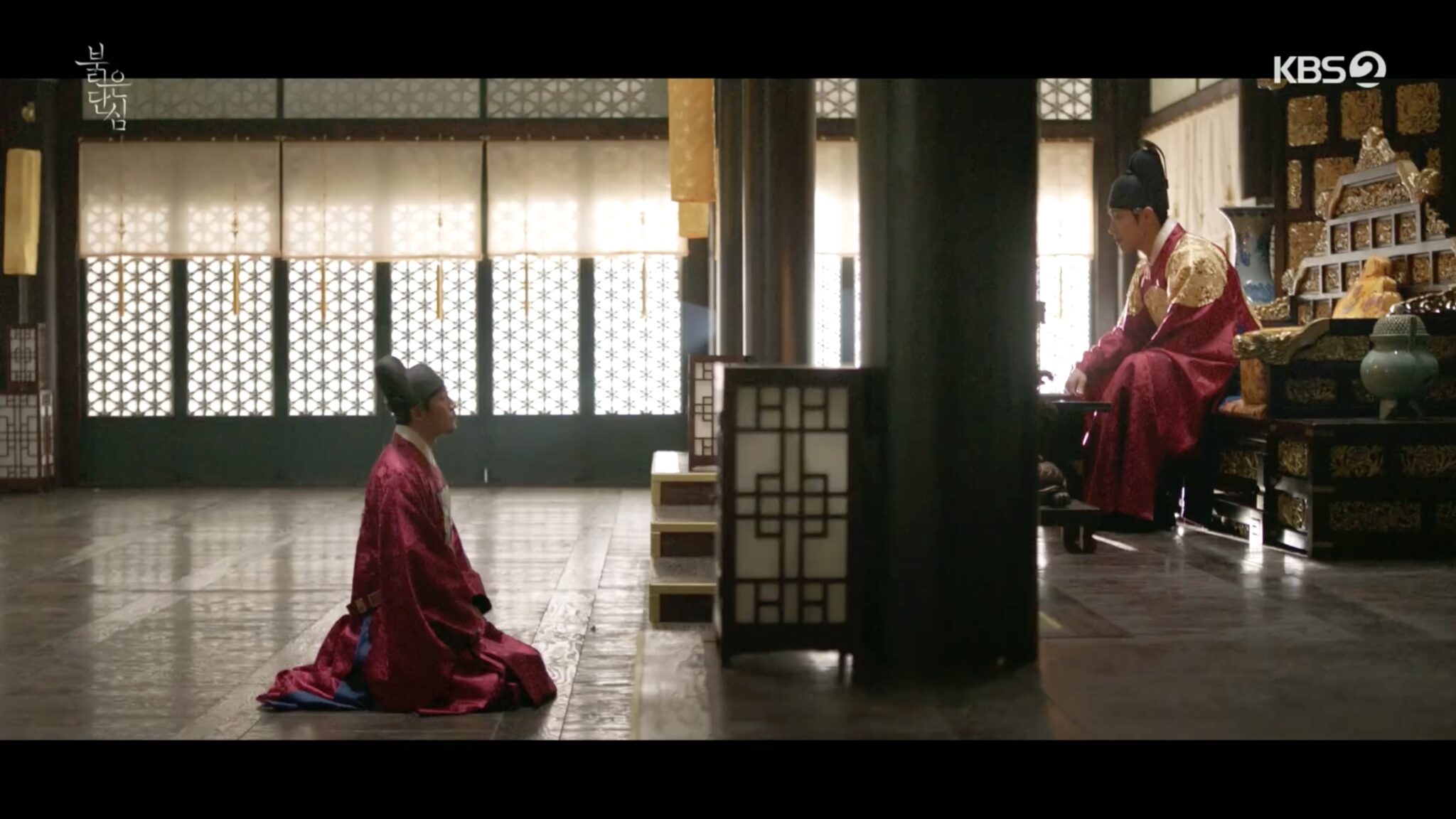
RELATED POSTS
Red Heart: Episodes 13-14
Source: Buzz Pinay Daily
0 Comments